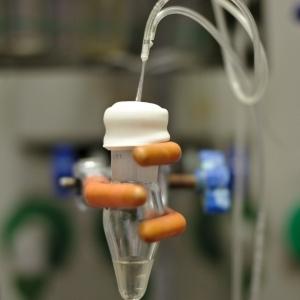Silicone in the chemical/petrochemical sector
Silicone stands out for its chemical stability and low reactivity, making it ideal for applications in contact with toxic and highly corrosive materials. Its high chemical resistance ensures optimal performance even in demanding environments.
It is commonly found in laboratories in the form of tubes, seals, and containers. In the petrochemical industry, its ability to withstand extreme temperatures, both cold and hot, along with its resistance to UV rays, guarantees the durability of projects. Additionally, its mechanical properties allow it to dampen vibrations and protect rigid metal structures from potential damage.
At MEREFSA, we design and customize silicone solutions to meet the specific needs of each client, ensuring quality and reliability in every project.
Silicone Strengths
Mechanical: Silicone combines flexibility and resistance to deformation, making it ideal for use in laboratories. It prevents deformations caused by vibrations in pipe joints in rigid structures, ensuring sealing and insulation against particles and weather agents.
Thermal: It ensures durability in oil and gas projects thanks to its resistance to temperatures from -60 °C to +300 °C. It is also used for fluid transfer in laboratories within this thermal range. For extreme conditions, special silicone formulations like THT (high temperature) and PMVQ (very low temperatures) are used.
Chemical: Its high chemical stability allows contact with corrosive materials. Platinum silicone is ideal for extreme working environments, known for its mechanical resistance, transparency, ease of sterilization, and hygiene. Fluorosilicones offer excellent resistance to most solvents, broadening their range of applications.

Where is it used?
Silicone is mainly used in the form of tubes as containers and fluid exchangers in laboratory applications that require sterilization, non-toxicity, and resistance to extreme temperature ranges. It is also used in insulation and sealing to ensure durability and performance in demanding conditions.
In the oil and gas industry, silicone is applied in structural supports to absorb and control vibrations, seals, and securing profiles between materials of different nature, ensuring mechanical resistance and stability.
Specifically in: Tubes for liquid extraction, self-filling tubes (burettes, test tubes), liquid containers, seals for pipeline joints, damping blocks, shaped profiles, and inflatable seals for chamber sealing.

Applied Products










